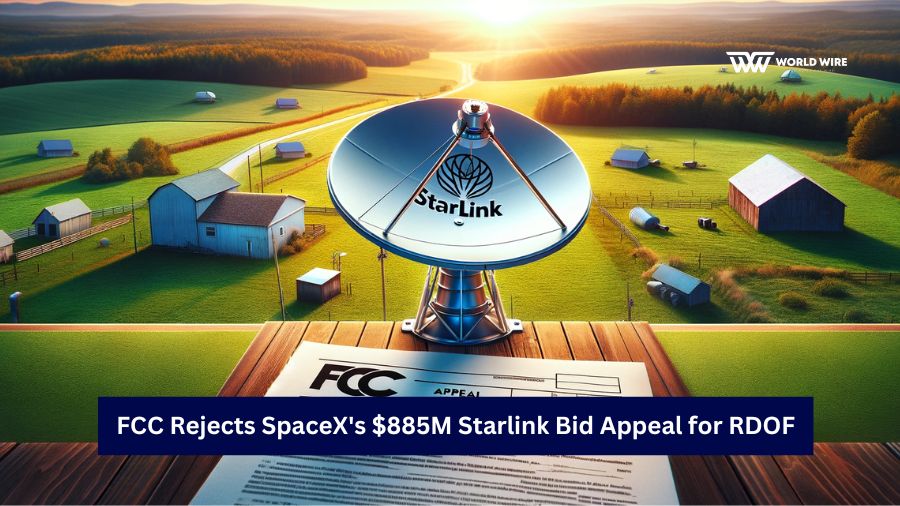Explore the FCC’s decision to deny SpaceX’s $885M Starlink appeal for the Rural Digital Opportunity Fund, detailing the reasons for rejection and Commissioner Brendan Carr’s opposing views on this pivotal broadband funding issue.
The Federal Communications Commission (FCC) has decided not to reverse its earlier decision to reject SpaceX’s winning bid for the Rural Digital Opportunity Fund (RDOF) program.
Over $885.5 million was anticipated by the company through the program, which was to partially cover the costs of providing high-speed broadband access to unserved rural communities.
More than eighteen months after the RDOF auction ended, in August 2022, AT&T first turned down SpaceX’s winning bid.
SpaceX challenged the decision, which concerned the company’s Starlink low earth orbit (LEO) satellite broadband offering, shortly after AT&T announced the rejection.

FCC’s Rationale for Rejection
The Federal Communications Commission (FCC) declared that it had concluded that SpaceX had not provided sufficient backing to support its claim that its low-Earth orbit (LEO) system could provide the promised service.
According to Jessica Rosenworcel’s news release regarding the appeal ruling, “The FCC is tasked with ensuring consumers everywhere have access to high-speed broadband that is reliable and affordable. The agency also has a responsibility to be a good steward of limited public funds meant to expand access to rural broadband, not fund applicants that fail to meet basic program requirements.”
“The FCC followed a careful legal, technical and policy review to determine that this applicant had failed to meet its burden to be entitled to nearly $900 million in universal service funds for almost a decade.”
Also, Read | FCC Proposes Protections Against Video Service Fees
Commissioner Carr’s Counterargument
Nevertheless, not every FCC commissioner agreed with the decision. Commissioner Brendan Carr said the commission was wrong to dismiss SpaceX’s appeal in his remarks sent with the order on review rejecting the appeal.
Brendan Carr questioned the logic of the commission’s concerns about whether SpaceX could deliver the speed needed to meet its bid obligations, as the company has yet to reach the required speed.
Carr stated, “That would be like watching a NASCAR race’s pace lap and then predicting that the cars will never exceed 50 mph.”
Additionally, he contended that the expense of implementing non-LEO options would be enormously higher.
Table of Contents







Add Comment